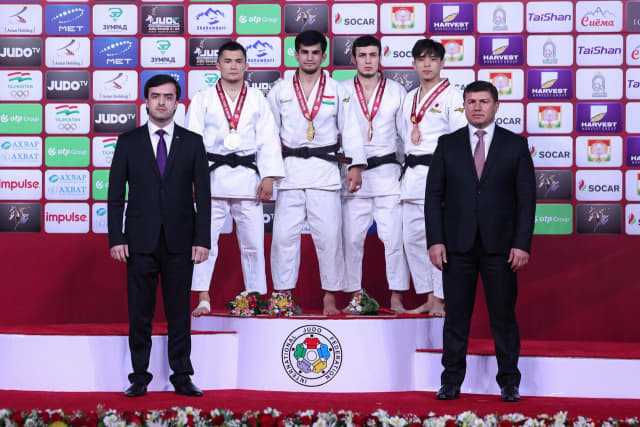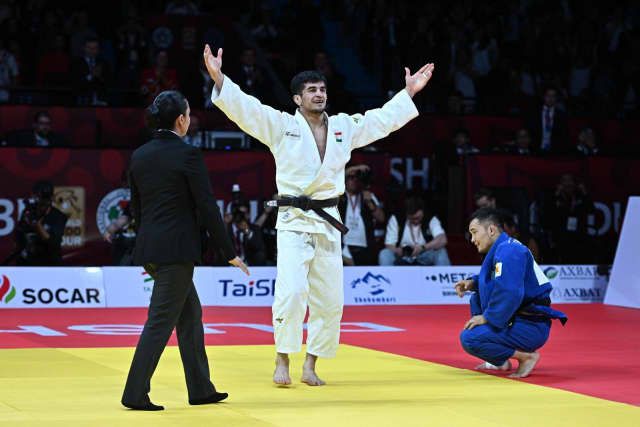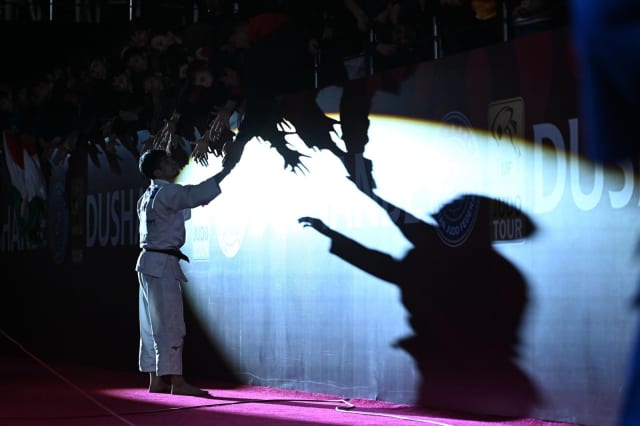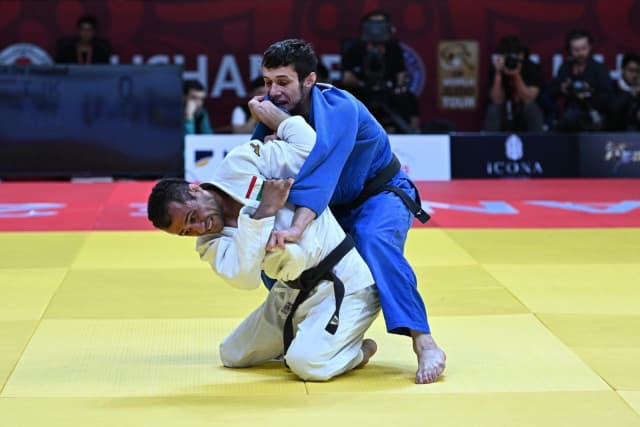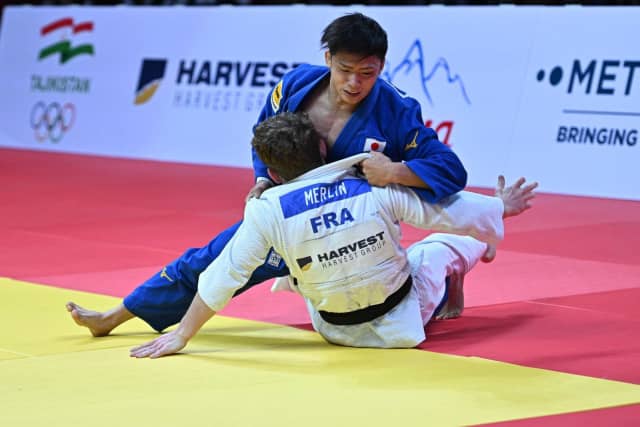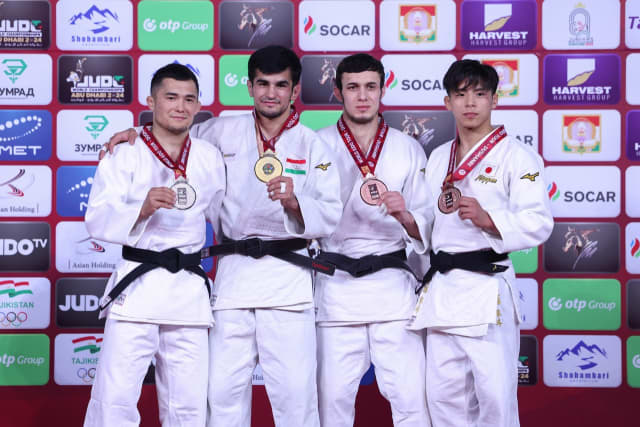Shamshadin faced Mahmadizoda (TJK) in round 2, where a waza-ari scored using an unusual kata-guruma halfway through the contest was enough to secure the victory. In the quarter final he met Angelo Pantano (ITA), and after a close match, with both fighters having two penalties on the board, the Kazakh athlete capitalized on a failed attack from his opponent to hold him down with kuzure-kami-shiho-gatame for ippon with just ten seconds of the contest remaining.
At the semi-final stage, Shamshadin came up against the relatively unknown Iznaur Saaev (AIN), and an even tougher match ensued. Both players attacked relentlessly, but neither was able to score on the other. Eventually, after a grueling ten minutes of fighting, Saaev was awarded a third and final penalty for passivity, booking Shamshadin a place in his second grand slam final.
Having defeated Serikbayev, Kondo was best placed to join Shamshadin in the final, but not everything went the way of the Japanese man. He was out-attacked in his quarter final by a spirited Haqdod Gulov (TJK) until the last ten seconds of the contest, where he threw with o-soto-gari to score waza-ari and progressed to the semi-final. There he met another member of the home team in Muhammadsoleh Quvatov (TJK), who finished in 5th place here last year and who was clearly on a mission to go at least one better this time around.
Quvatov defeated Yadav (IND) in round 1, using soto-makikomi and later tai-otoshi to score waza-ari-awasete-ippon. After going behind by waza-ari to Zairbekov (AIN) in their round 2 contest, the Individual Neutral Athlete was later disqualified for head diving. In the quarter-final Quvatov was drawn against Rodrigo Costa Lopes (POR), and the Tajikistan fighter threw his opponent with a low tai-otoshi, scoring waza-ari after one minute. A counter throw with 23 seconds remaining scored him a second waza-ari and set up a semi-final with Kondo.
That semi-final was an enthralling contest which saw both athletes make several strong attacks in tachi-waza and ne-waza. But at the end of the third minute, Quvatov produced a moment of magic, cleverly disguising a low o-uchi-gari attack which flattened Kondo and sent the home crowd into a frenzy. Kondo was left stunned; Quvatov guaranteed himself a first ever World Tour medal.
In the final, an early penalty to Quvatov put Shamshadin in the driving seat but the home favourite was undeterred with the entire Kasri Tennis Arena behind him. As Shamshadin came forward in the third minute, Quvatov took a deep cross grip on his opponent’s belt and threw using hikikomi-gaeshi to score a dramatic ippon and delight the adoring crowd. This is his first World Judo Tour medal and puts him within touching distance of Olympic qualification. Shamshadin will be disappointed with the final result but will be content with reducing the gap between him and Serikbayev in the Olympic rankings.
The first bronze medal contest saw Gulov take on Saaev. Gulov dominated the early exchanges but Saaev gradually worked his way back into the contest, coming close to scoring with an uchi-mata, before throwing with hikikomi-gaeshi with 12 seconds remaining, scoring waza-ari and holding on for the win. This is Saaev’s first WJT medal in only his third attempt.
Kondo took on Maxime Merlin (FRA) in the other bronze medal contest; the Frenchman had quietly defeated third seed Michel Augusto (BRA) in round 2 and Pantano in the repechage. Merlin struggled to impose his judo on his Japanese opponent and Kondo came extremely close to scoring twice with explosive uchi-mata attacks. In the closing seconds, Merlin reached for a tani-otoshi, and Kondo effortlessly countered him onto his back for ippon to earn his second grand slam medal.
